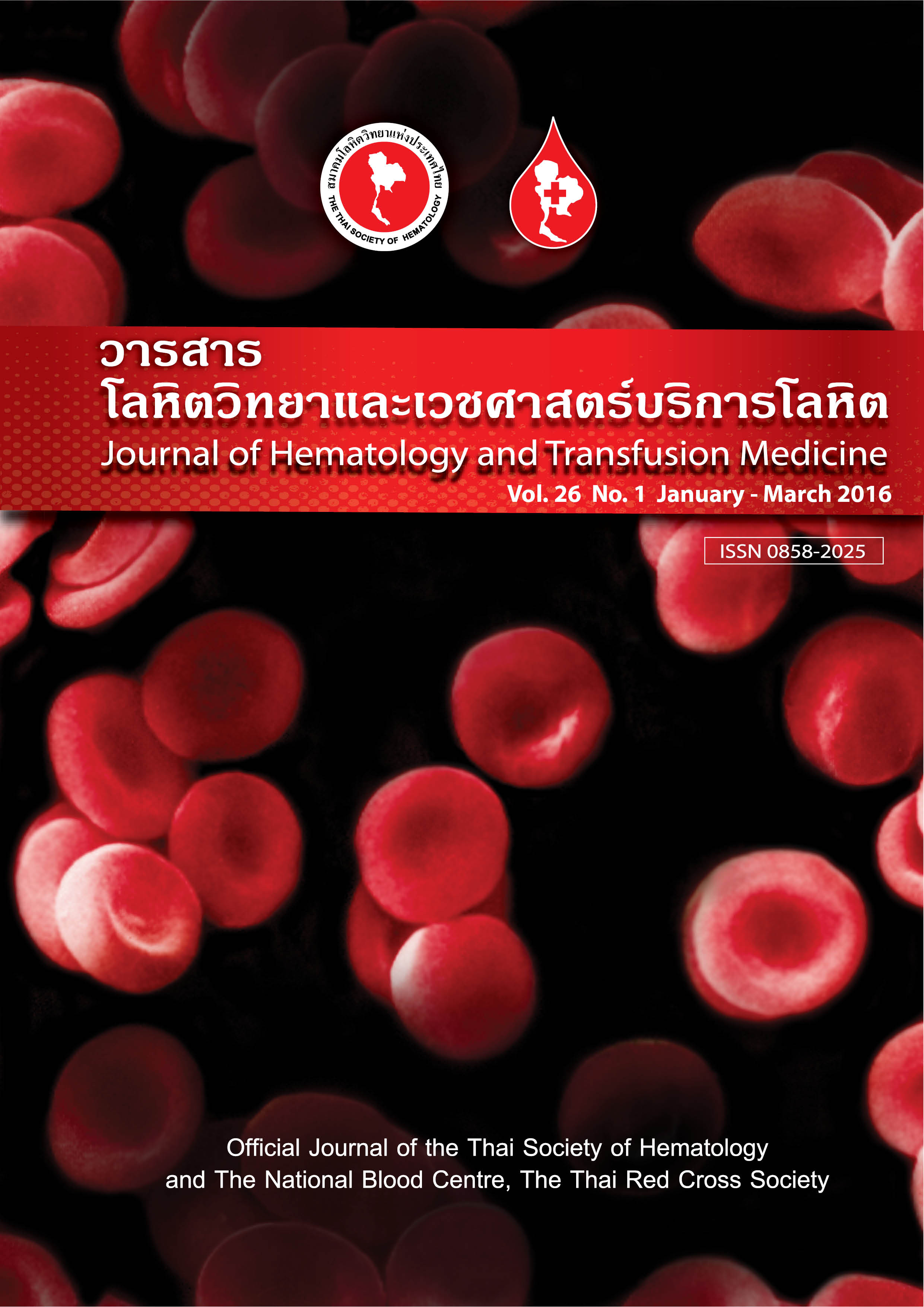Association of Maternal ABO IgG Antibodies with Neonatal Jaundice due to ABO Incompatibility at Siriraj Hospital
คำสำคัญ:
ABO HDFN, ABO IgG antibodies, Neonatal jaundice, Hyperbilirubinemiaบทคัดย่อ
Objective: To study the association between maternal ABO immunoglobulin G (ABO IgG) antibody titer and
neonatal hyperbilirubinemia, neonatal direct antiglobulin test (DAT) results, the detection of ABO IgG antibodies
in elution and neonate sera, and the implications for treatment of the neonate. Materials and Methods:
Samples were collected from 240 couples with ABO blood group maternal-fetal incompatibility, with maternal
indirect antiglobulin test ( IAT) negative, and neonatal bilirubin level ≥ 3 mg/dL. Newborn samples were tested
using DAT, IAT, and elution. Maternal samples were examined for ABO IgG antibodies using dithiothreitol
(DTT) testing to distinguish IgM from IgG antibodies, and antibody titration. Results: There was a statistically
significant association between maternal ABO IgG antibody titer and bilirubin level, neonatal DAT, ABO IgG
antibody in newborn sera and ABO IgG antibody in eluate. The correlation coefficient r = 0.384, 0.336, 0.384
and 0.176 (p < 0.001), respectively. In negative DAT samples, 58.9% of Lui freeze-thaw elution test were positive.
Conclusion: The association between maternal ABO IgG antibody level and neonatal jaundice was statistically
significant. In the routine care of these newborns, the blood bank should add testing for maternal ABO IgG
antibody titer and elution testing of newborn serum for all ABO-incompatible groups to advise clinical decisionmaking.
The early detection and treatment of neonatal hyperbilirubinemia is critical to prevent bilirubin-induced
encephalopathy.



